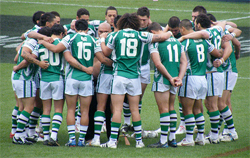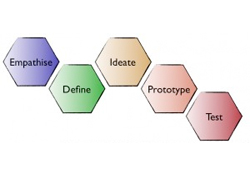
Oliver is a Lecturer in Education at Plymouth University. Mixing previous experience of music production and IT support with influences from Early Years education, he previously taught in a primary school developing practice around independent learning and new technologies.

For many educators the professional experience can be a paradoxically lonely one. Teaching is all about communication and relationships, they spend most of their time with large groups of people, yet their position is unique and in many ways isolating. They spend class time as an ‘other’ in a large group of peers, conceptually if not physically alone, and when the classes leave and the work of planning and assessment begins they are often physically alone as well.
The personal implications of this are obvious but there are professional implications as well. In an isolated situation is is hard to develop and progress in what you are doing, as the impetus to do so must come entirely from within, and the models and ideas for next steps must be created from nothing or very deliberately sought out. Why else are so many teachers eagerly communicating through platforms such as twitter, blogs and other social media? Developing on your own is hard, and truly moving forward often requires the ideas, encouragement and challenge of others.
Photo credit: Naparazzi

PSHE is an interesting subject area in the UK. Much government policy and school rhetoric depict its importance, yet the status of PSHE as a subject is complex (PSHE Association, 2010). To over simplify a little, it is statutory to teach PSHE, but there is not a statutory curriculum which sets out what should be taught... to my mind this was the perfect opportunity to try something new.
My students did not need instruction in how to practice teaching; what I decided would be valuable to them is an invitation to explore their thinking, to examine the area of PSHE and, upon examination, explore what a curriculum could look like. For the last few years I have been following the work of Ewan McIntosh and his colleagues on ‘Design Thinking’ in eduction, and the structure this gives for creation seemed an ideal vehicle for this exploration.
Photo credit: Standford d.school

For many years the teaching profession has been familiar with the term ‘best practice’; sharing what is working well in one setting so that it might be implemented in another. It is happening within schools, between schools at conferences and TeachMeets, and online through both ‘top-down’ websites and ‘bottom up’ blogs from teachers.
Even the recent review of the English National Curriculum has been influenced by a comprehensive review of ‘best practice’ in different subjects from across the world (DfE, 2012). There is a problem with taking such practice at face value. The ‘best practice’ that is often held up is Finland due to the high levels achieved in international PISA league tables (OECD, 2009). However, when looking at international comparisons ’best practice’ is only part of the story. Practice in schools is coupled with the Finnish culture, which places a high value on academic achievement, and a high status for their teaching profession. How can we replicate Finnish achievement unless we take the complexities of Finnish culture and implant them on the English?

The use of computer games in schools has received much attention in the last few years, and stirred up some controversy. However, games have been a part of learning for a long time, and there is much interesting research to support this. Some time ago I attempted a survey of the use of computer games in education for my third year BEd module on cross curricular uses of ICT.
From learning through play, to the loose movement of ‘Games Based Learning’ and ‘Gamification’, as well as recent insights from Neuroeducational research, this lecture seeks to give an overview of the current state of learning from games.

A community-driven platform for showcasing the latest innovations and voices in schools
Pioneer House
North Road
Ellesmere Port
CH65 1AD
United Kingdom